Hacking Politics: How Geeks, Progressives, the Tea Party, Gamers, Anarchists, and Suits Teamed Up to Defeat SOPA and Save the Internet (57 page)
Authors: and David Moon Patrick Ruffini David Segal
Tags: #Bisac Code 1: POL035000

In the map of the last week of November, several interesting features emerge. In addition to the obvious continuity, YouTube becomes a prominent platform, although no single video dominates this effect. The Business Software Alliance (BSA) receives much attention when it announces, on November 21, that it has reversed its position and now opposes SOPA. Research papers receive substantial attention; here, Allan Friedman’s analysis of the effects of SOPA on cybersecurity, published on brookings.edu, and survey results of research conducted by Joe Karaganis at the Social Sciences Research Council (SSRC) suggesting that the practices targeted by SOPA and PIPA are rare, and that public opinion supports a certain level of “copy culture.” Finally, the possibility of individual voices emerging periodically at critical moments is exhibited by the visibility here of Brad Burnham’s tumblr.
Week of November 21

A weakness of simple visual examination of the the maps, however, is revealed by the discrepancy between size and location of the node describing Alex Howard at O’Reilly Radar. His posts link to all of these highly-visible sites, and his node is located at the center of the link economy. However, because he acts by identifying and linking out to these nodes, rather than being linked-to, his bridging role does not “pop out” in a simple visual examination of the maps.
In the first two weeks of December of 2012 some of the action shifts back to D.C.; the National Review conducts dueling editorials as the right wing tries to reconcile between its members who support SOPA and those who oppose it. Sunlight Foundation’s review of contributions to members gets some linking, but the most interesting observation, from the perspective of the role of individuals and the mobilization of expertise, is the prominence of the analysis of the SOPA managers’ amendment developed by law professor Eric Goldman on his blog.
December 2012, Week 2.
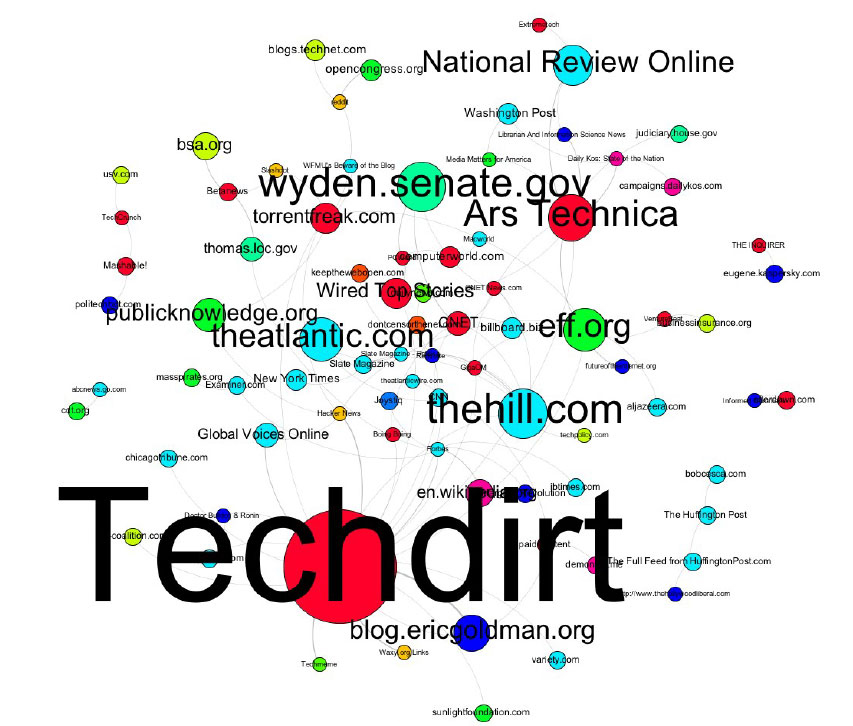
December 2011, Weeks 4, 3

On December 21, 2011, the House Judiciary committee released a long list of corporate supporters of SOPA, in the hope of bolstering the claim that SOPA was good for business and innovation. The difference between the map before and after that event is stark, and provides one of the clearest examples we have of (a) the dynamism of the networked public sphere and (b) the possibility of converting discourse into action. It marks a major mobilization by online users, initiated by a single reddit user, to boycott Go Daddy for its support of SOPA/PIPA. Go Daddy retreated and abandoned the acts almost immediately. Following this boycott, we later see gamers follow a similar path in January, with users pressing customer support sites and sharing their queries and answers from vendors on sites like Kotaku, Joystic, mommysbestblog, and epicgames. The bottom half of the map during the fourth week of December is a stark instance of converting talk into action in the networked public sphere, as well as an instance of how a single speaker, with an idea, can move a large group.
Furthermore, while this map cannot distinguish between reasons for links to Wikipedia, an analysis of the actual links that make up the aggregate reemergence of Wikipedia as a major node in the fourth week of December shows a mix, with a significant portion linking to the debate launched by Jimmy Wales within Wikipedia as to whether SOPA is so dangerous to the open Internet that Wikipedia should shut down in protest for a day. The debate within the Wikipedia community, including over two thousand participants in the decision, was itself a fascinating instance of direct democracy—in this case, within the community of contributors to one of the world’s more visited and important Web sites.
The overwhelming story of January is the explosion of action and attention around the blackout on January 18, 2012. The single week of January 16–23 saw over three thousand five hundred stories on SOPA and PIPA, about 40% of the total number of stories between the introduction of SOPA and its defeat, and about one third of all stories throughout the 18-month period we studied. In this particular moment of massive mobilization, certain of the long-standing core nodes remain visible: Techdirt, CNET, and Ars Technica; Wikipedia; the EFF; and Open Congress and Fight for the Future. The new major node, which had already emerged during the prior week, Whitehouse. gov, is the administration’s public declaration of its opposition to SOPA/PIPA, a declaration made in direct response to a petition drive that garnered over fifty thousand signatures using the platform of petition.whitehouse.gov. The only other notable feature is the growing role that reddit came to play in the last three weeks of the campaign, following the initial activation around the GoDaddy boycott. By the week of the boycott itself, reddit is located at the very heart of the map.
The major flip in support in the House and Senate between January 18 and 19 clearly shows that the protest of January 18 closed the deal. But it is impossible to understand that day without also understanding the discourse, framing, and organizing dynamics of the preceding 17 months. This period, as we saw, was comprised of a highly dynamic, decentralized, experimentation-rich public
sphere, where different actors played diverse roles in diagnosing the problems with the act, re-framing the public debate from “piracy that costs millions of jobs” to “Internet censorship,” and organizing for action. Clearly, our analysis does not cover all aspects of the organization. We have not studied Twitter; we have not studied back channels we know existed, such as mailing lists. There are individuals, like Marvin Ammori, whom we know from interviews and available published accounts played a major organizational and intellectual role, but do not show up in our data using public-facing communications alone. Despite these limitations, the data do cohere to a remarkable extent with our qualitative understanding of the dynamics.
January 2012 Weeks 1 and 2
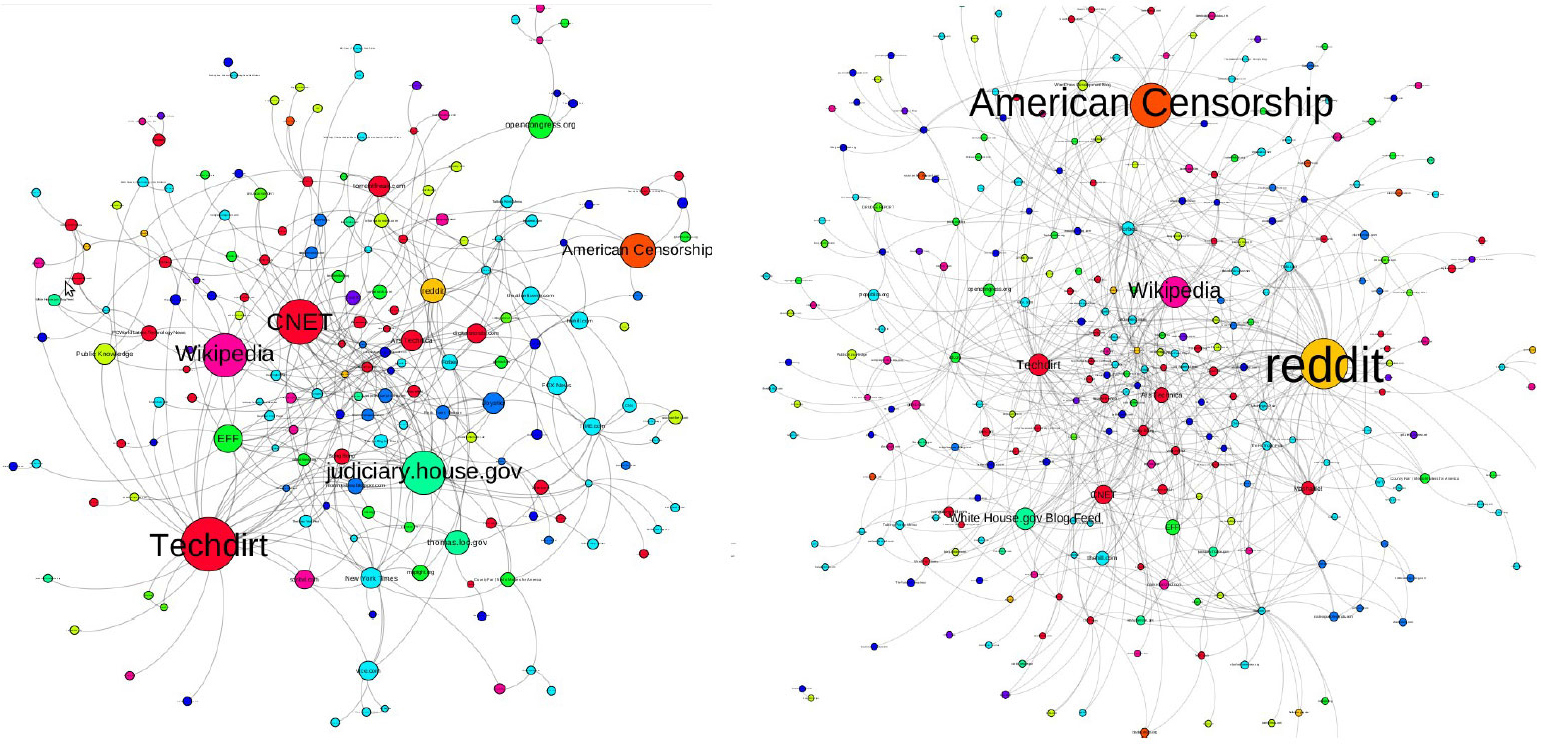
January 2012 Week 3: detail
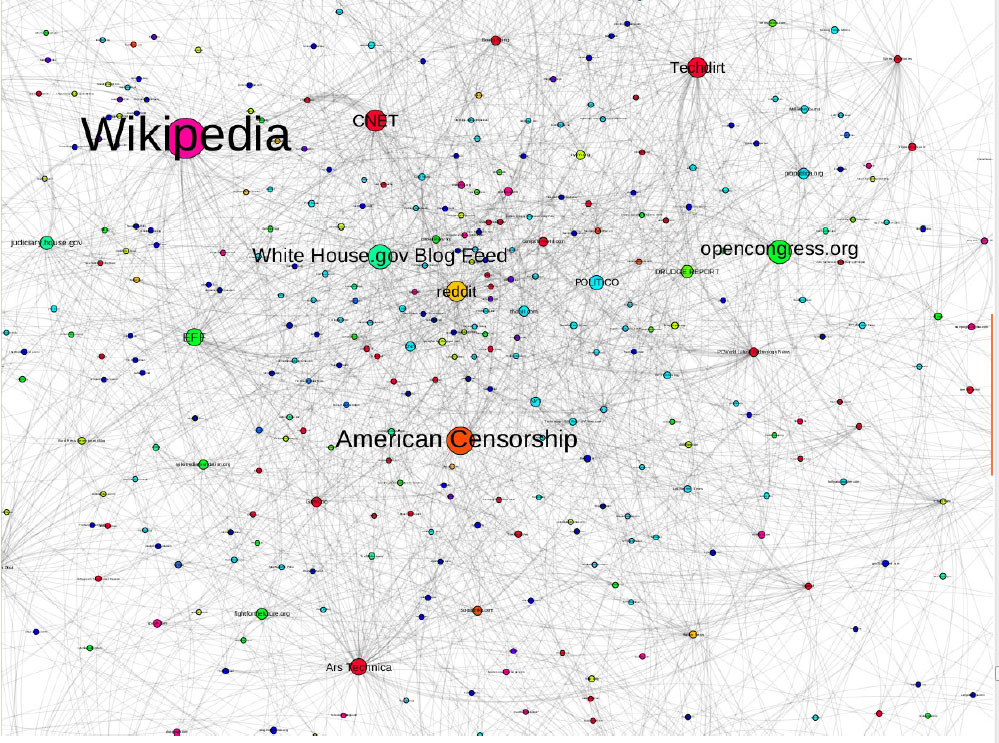
January 2012 Week 3 Overview
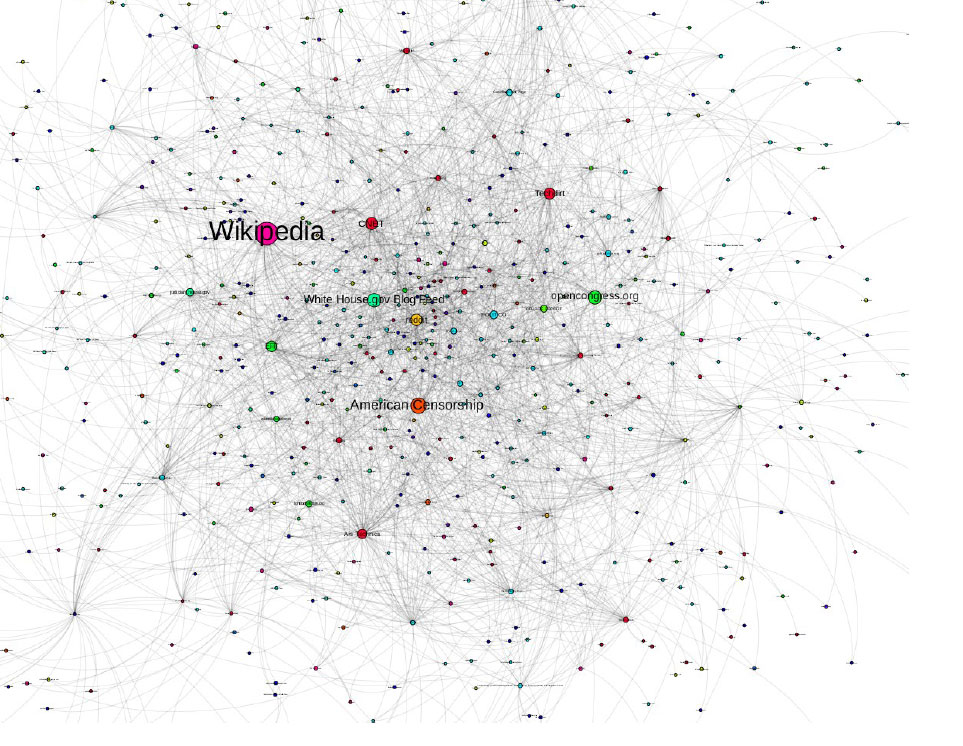
Perhaps the SOPA/PIPA events were unique. Perhaps the high engagement of young, net-savvy individuals is only available for the politics of technology; perhaps copyright alone is sufficiently orthogonal to traditional party lines to traverse the left-right divide; perhaps Go Daddy is too easy a target for low-cost boycotts; perhaps all this will be easy to copy in the next cyber-astroturf campaign.
Perhaps.
But perhaps SOPA/PIPA follows William Gibson’s “the future is already here, it’s just not very evenly distributed.” Perhaps, just as was the case with free software that preceded widespread adoption of peer production, the geeks are five years ahead of a curve that everyone else will follow. If so, then SOPA/PIPA provides us with a richly detailed window into a more decentralized democratic future, where citizens can come together to overcome some of the best-funded, best-connected lobbies in Washington D.C. Time will tell.
DAVID KARPF
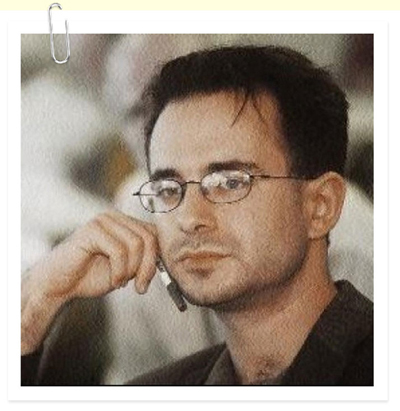
David Karpf is an assistant professor in the George Washington University School of Media and Public Affairs and an active blogger. He researches online activism and is the author of the recent book
The Moveon Effect.
The January 18th SOPA blackout was the single most successful organizing tactic of the Internet era. Over seven million people signed Google’s online petition. Over seventy-five thousand websites took part in the protest. The day of action produced immediate results. Six senators ended their cosponsorships of the bill, while twenty-six more announced their opposition. Opposition to the bill approximately tripled in the House, leading Speaker John Boehner to announce that the bill would be returned to committee and reworked. The SOPA blackout is not the end of the story (legislative proposals are like comic book villains; they never stay dead for long) but the SOPA day of action now stands as the gold standard for Epic Wins in political organizing.
